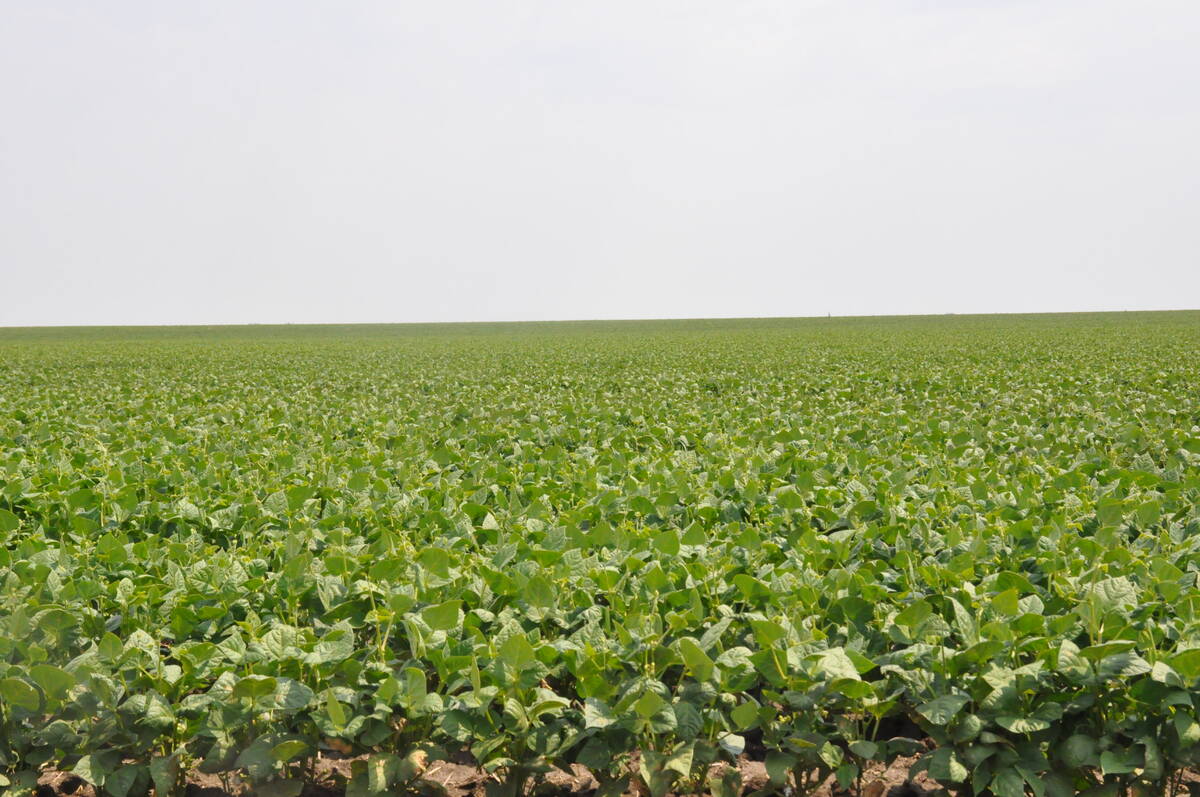ROBLIN, Man. – The rough seas tossed the landing boats around like bath toys and men like Albert McFadyen prayed that any bombs falling would be direct hits to limit further suffering.
McFadyen and the Canadian Scottish Regiment were among the first infantry to hit the beaches of Normandy on June 6, 1944. The Allied landings in France launched the liberation of Europe and led to the end of the war the following year.
With bullets hitting the water like rain around them, they waded out of the crafts into chest-deep water. That would be their last bath in weeks for the men who carted 30 kilogram packs. Rations of water and chocolate would be their only food for the next few days.
Read Also

Coloured bean production down, whites are up
Bean prices have been slumping and the outlook is for more of the same.
“You were not thinking too much about food, but about saving your life,” said McFadyen, explaining later. “You had to think of yourself because nobody else did.”
Their only cover against German rifles were the gun ships lobbing rounds over the Canadians’ heads as their landing crafts approached the beaches. Once there, the infantry was largely on its own to push back the enemy.
McFadyen’s first task was to clear the beaches to allow the trucks coming behind them to unload.
The Germans had fortified the beaches with booby traps, mines and barbed wire. McFadyen said the men were pinned down for 20 minutes while tanks helped clear a safe path for them to cross the beaches.
The soldiers were expected to reach Caen the next day, but it took them a month.
Fighting was intense, with McFadyen snatching moments of sleep in the trenches between gun fights.
He recalled one battle where he got separated from his troop and had to lay low in an abandoned German trench until dusk, unsure of where either side was positioned. By the time he crawled back to his regiment, he had been reported as missing in action.
McFadyen had enlisted a year earlier at age 20 in search of a steady paycheque. He received $1.45 a day, less than half of the seasonal farm wages he received back home at Roblin, Man., but the army was full-time work.
His regiment trained for many months in southern England for this mission.
The dreary June day started on the Mother Ship, the Prince Henry, with breakfast at 4 a.m.
“That was the quietest breakfast I ever sat down to,” said McFadyen. Some ate and others pushed the dishes away while still others wrote letters home for the last time.
The troops were given nerve and sea sickness pills before scrambling down cargo nets to the landing crafts, where they sat in tight rows for the remaining 13 kilometres to the beach.
The Germans proved to be formidable enemies, using numerous deceptions to trick the Allied forces. McFadyen recalled seeing a handful of Germans on patrol dressed in Canadian and British uniforms, or German planes painted in Allied colours in dogfights in the air with Allied fighters.
Yet McFadyen also saw another face of the enemy during the capture of a German soldier who pleaded to see pictures of his own wife and children.
“A lot of Germans didn’t want to fight any more than we did,” he said.
At the front of most of the conflicts, he was aware of the carnage, the blood-soaked blankets covering the fallen and the lines of refugees retreating from areas of conflict.
By the time he finished serving overseas, more than half his troop was new recruits.
“It was either you keep going or they’ll get you,” he said of his life as a soldier.
Most towns they came to had been cleared of any supplies by the Germans. Farm animals were also hit hard by the fighting, and bloated carcasses were commonplace.
He remembered more than 600 bombers bombarding Caen prior to ground forces moving in.
“There was nothing but smoke and dust,” he said.
His fighting days came to an end Aug. 15, 1944, at the Falaise Gap where the Allies had forced the Germans through a single passage, capturing hundreds of them.
During this fight, McFadyen was hit in the left eye, right hand and chest. He laid low “fevering” in a wheat field, letting the Germans think he was dead before getting picked up by the Red Cross and taken to a field hospital.
He would spend three months in hospital recovering from wounds that are still visible today. He returned to Canada in January 1945, married and raised three children on the farm with his wife Ilene.
Reflecting on his own wartime experience 60 years ago, McFadyen said simply: “Somebody had to do it.”
“You really didn’t have a choice, you were young and didn’t know too much.”
Today he is certain he would neither enlist again nor encourage anyone else to go to war.
“I have grandchildren at that age now and I don’t want them to get in a mess like that,” McFadyen said.














